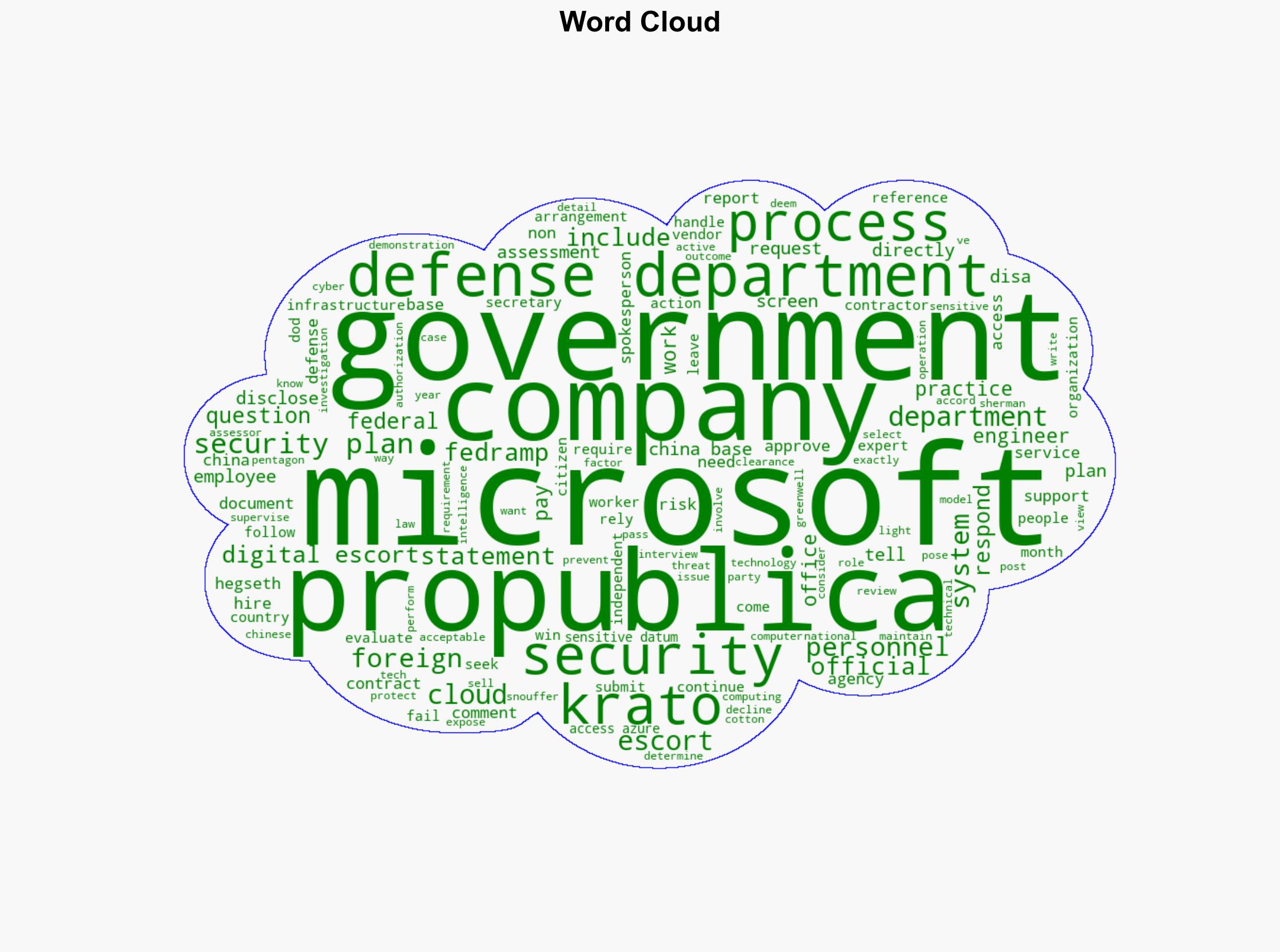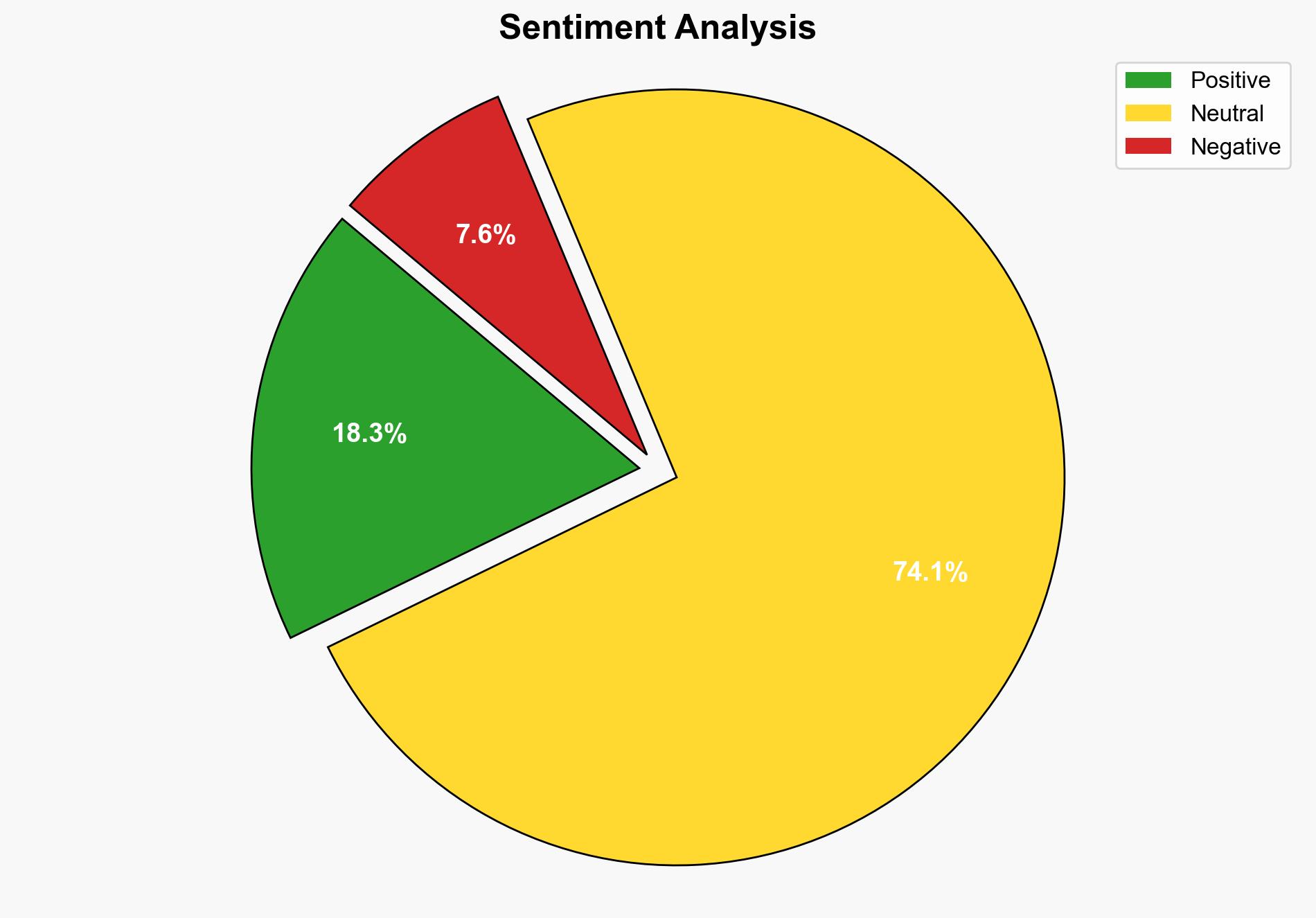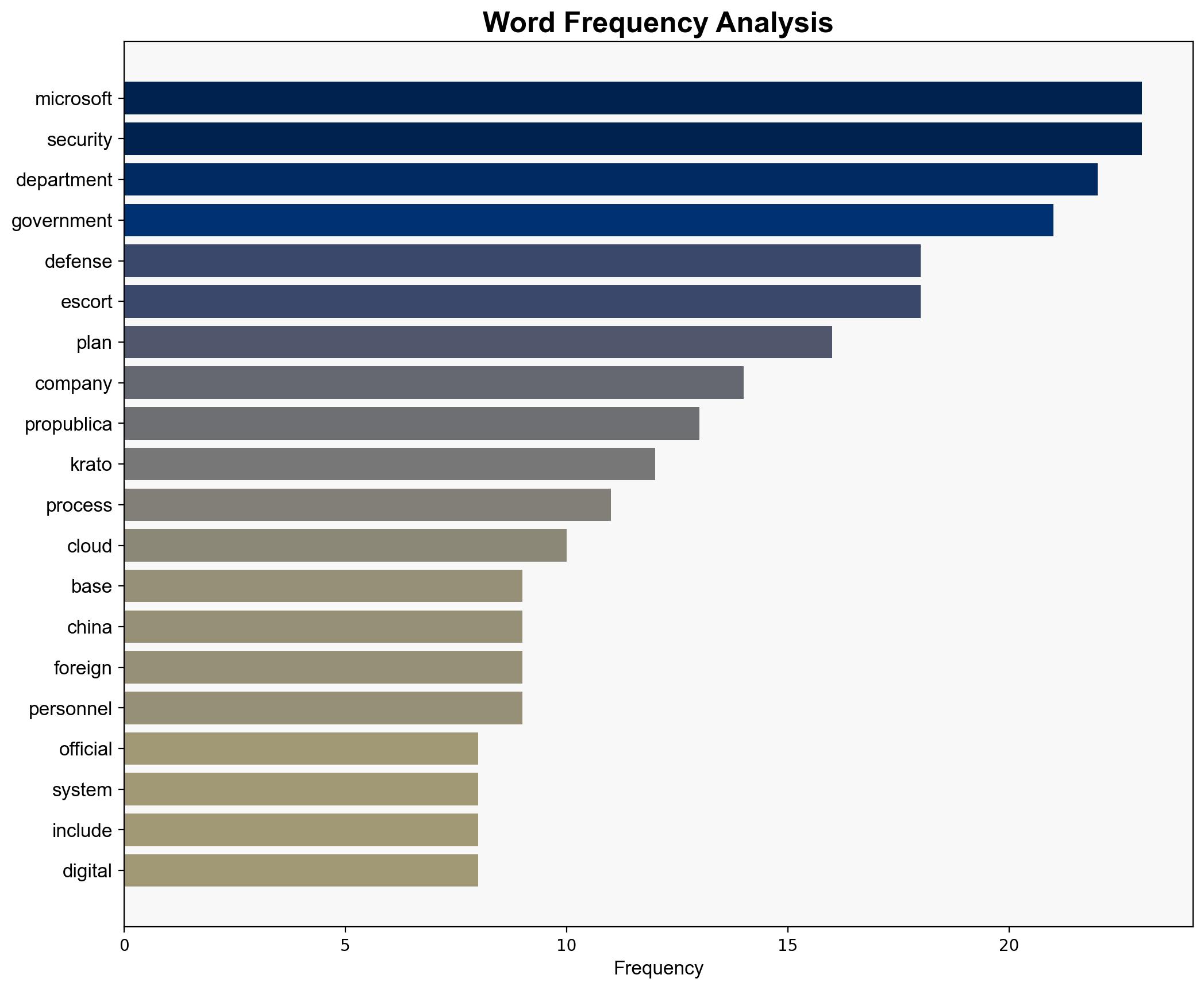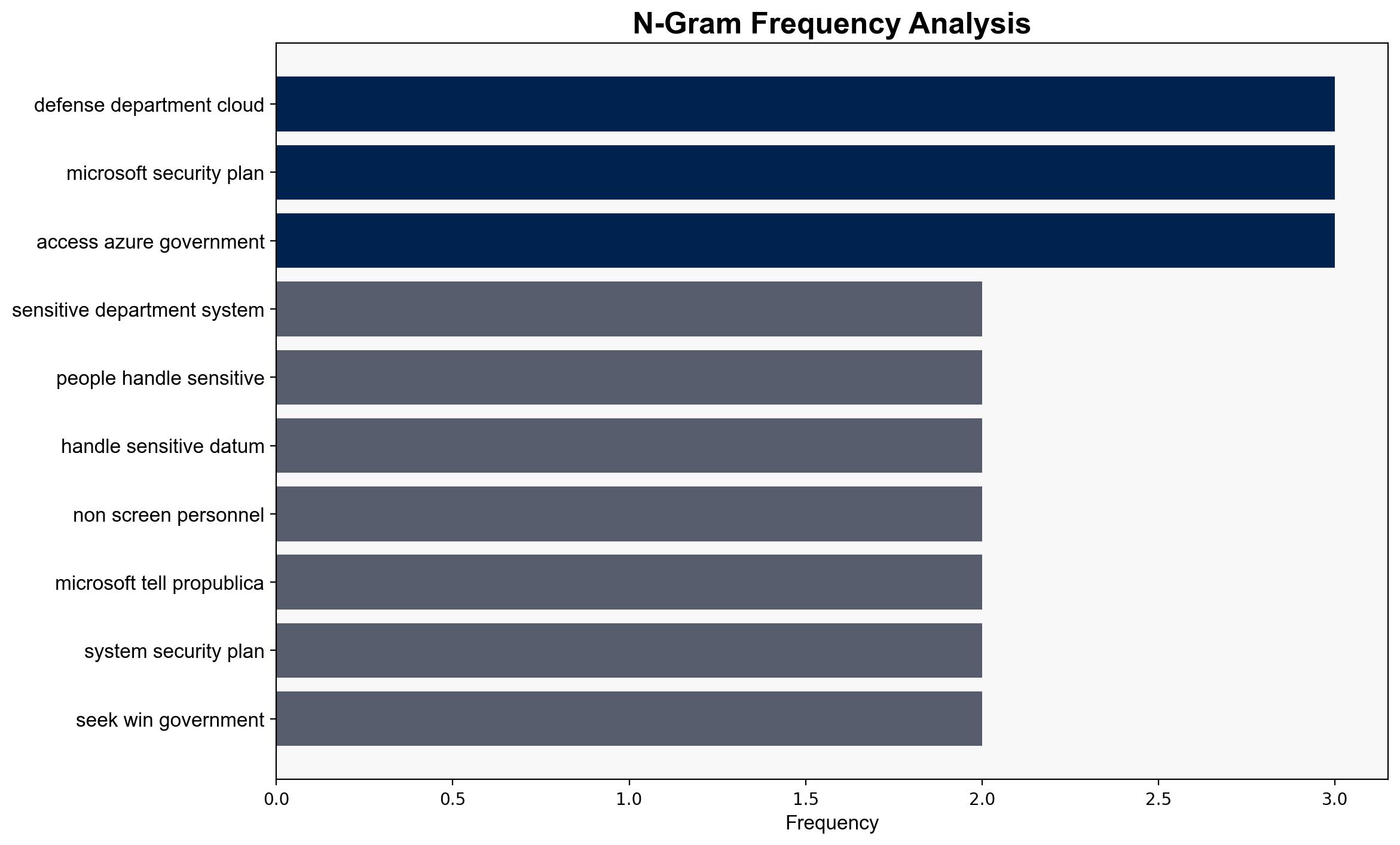Microsoft Failed to Disclose Key Details About Use of China-Based Engineers in US Defense Work Record Shows – Hoover.org
Published on: 2025-08-24
Intelligence Report: Microsoft Failed to Disclose Key Details About Use of China-Based Engineers in US Defense Work Record Shows – Hoover.org
1. BLUF (Bottom Line Up Front)
The investigation reveals potential security vulnerabilities in Microsoft’s handling of defense contracts, particularly regarding the use of China-based engineers. The most supported hypothesis is that Microsoft failed to fully disclose these arrangements due to oversight or strategic obfuscation, posing a significant security risk. Confidence level: Moderate. Recommended action: Immediate review and tightening of contractor disclosure requirements and security protocols.
2. Competing Hypotheses
1. **Hypothesis 1**: Microsoft intentionally omitted details about China-based engineers to expedite contract approvals and maintain a competitive edge in securing government contracts.
2. **Hypothesis 2**: The omission was due to a lack of internal oversight and understanding of the security implications, rather than intentional deception.
Using Analysis of Competing Hypotheses (ACH), Hypothesis 1 is better supported by the evidence of repeated omissions and the strategic advantage gained by not disclosing potentially controversial details. Hypothesis 2 is less supported due to the structured nature of corporate compliance processes, which typically involve multiple checks.
3. Key Assumptions and Red Flags
– **Assumptions**: It is assumed that Microsoft has comprehensive internal compliance mechanisms and that any omission is deliberate. It is also assumed that the Department of Defense has robust vetting processes.
– **Red Flags**: The lack of transparency in Microsoft’s disclosures and the potential for Chinese government influence over China-based engineers are significant concerns. The absence of detailed oversight by the Department of Defense is another red flag.
4. Implications and Strategic Risks
The use of China-based engineers in sensitive defense projects could lead to unauthorized data access, posing a cybersecurity threat. This situation could escalate tensions between the U.S. and China, affecting bilateral relations and potentially leading to stricter regulations on foreign involvement in defense contracts. Economically, it may impact Microsoft’s ability to secure future government contracts.
5. Recommendations and Outlook
- Conduct a comprehensive audit of all defense contractors to ensure full compliance with disclosure requirements.
- Enhance vetting processes for foreign personnel involved in sensitive projects.
- Scenario Projections:
- **Best Case**: Improved transparency and security measures restore trust and prevent data breaches.
- **Worst Case**: A breach occurs, leading to significant data loss and geopolitical fallout.
- **Most Likely**: Incremental improvements in oversight and compliance reduce immediate risks but require ongoing vigilance.
6. Key Individuals and Entities
– Microsoft
– Department of Defense
– Pete Hegseth
– John Sherman
7. Thematic Tags
national security threats, cybersecurity, counter-terrorism, regional focus





